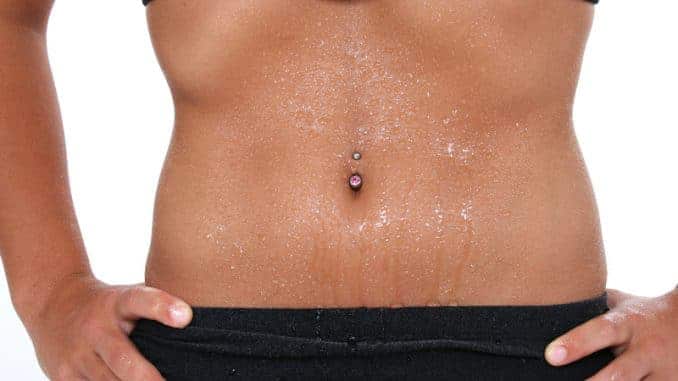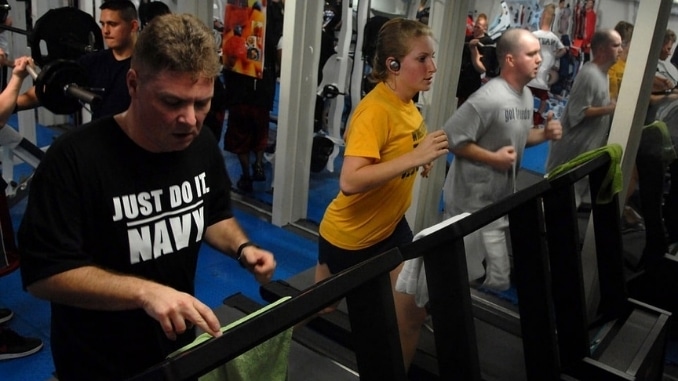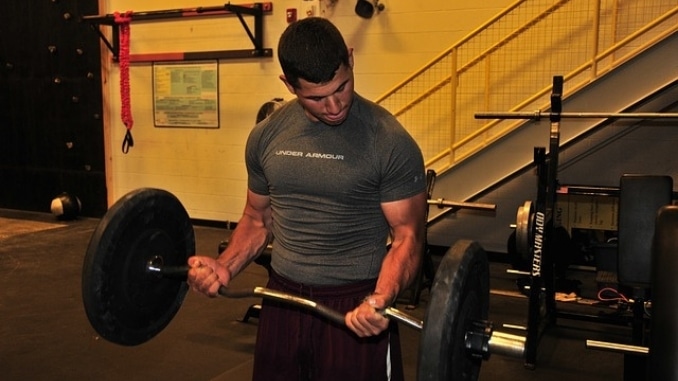
Most of us, if we had the choice, would prefer not to sweat. It’s messy, often stinky, and usually spells disaster for makeup and hairstyles. If you’re in an important meeting or other events, sweat can be embarrassing, and you’re likely to do everything you can to avoid it.
However, sweating is a good thing and provides the body with several health benefits. In fact, those who can’t sweat — a condition called hypohidrosis or “absent sweating” — struggle with problems like dizziness, muscle cramps, overheating and heat stroke.
Because most of us are stuck with the process, it helps to know a little more about it and why, sometimes, it may even be beneficial to sweat a little more.
What Is Sweat?
The main purpose for sweating is to cool the body down. The brain sends signals to the sweat glands, and they release a clear fluid that when it evaporates, helps lower body temperature.
Each person has about three million sweat glands lying within the deep layers of the skin. These glands connect to the outer layer of skin, where they release a fluid made up mainly of water, with some electrolytes like sodium, chloride, potassium, urea, lactate, amino acids, bicarbonate, and calcium. About one percent of sweat also contains proteins.
The body has two different types of sweat glands concentrated in different areas.
1. Eccrine Sweat Glands
These glands are present all over the body but are concentrated in the forehead, hands, and feet. They produce most of the body’s sweat — that light, watery kind — and are most responsible for cooling the body down. When exposed to heat or when exercising, humans can produce about 1.4 liters per hour of sweat through these glands.
Eccrine sweat glands have both dark and clear cells — the dark ones secrete glycoproteins, whereas the light ones produce electrolytes like sodium and potassium. The glands will reabsorb some of the sodium chlorides to help preserve electrolyte balance. Sweat from these glands typically has no odor on its own — it’s only when it’s mixed with bacteria on the skin that it may smell.
2. Apocrine Sweat Glands
These glands are concentrated in the hair follicles on the scalp, armpits, and groin and are typically larger than eccrine glands. They produce a heavier, sweat-laden with proteins, lipids, carbohydrates, ammonium and other organic compounds, which makes this sweat more attractive to bacteria. When this “milkier” sweat mixes with bacteria in the skin, it can produce a foul odor or body odor.
Apocrine glands become active at the onset of puberty and, from then on usually produce sweat under conditions of emotional stress or arousal, which is why people typically think “stress sweat” smells worse than regular sweat.
Why Do We Sweat?
When the body starts to heat up for whatever reason — work, exercise, and warm temperatures — the brain sends signals that tell the sweat glands to release sweat. The sweat is meant to cool the body down, but for the sweat to do its job properly, it has to evaporate off the skin and turn into a gas, leaving the surface of the skin. As it does so, body temperature lowers, and the brain slows its sweat-producing signals.
Sweat glands, however, are also tied to emotional signals and can become active when we’re under stress, nervous, anxious or going through hormonal changes. This is why your palms sweat before a speech or why your forehead may get shiny during a job interview.
Interestingly, everyone sweats differently. Some sweat a lot and some only a little. The difference is mostly caused by genetics, but your fitness level also plays a part. Improving your fitness impacts the way your body works, and the more you exercise, the more efficient your body becomes at working out, and the more you’re likely to sweat.
During exercise, most of the calories you burn go toward generating heat in the body. You have to get rid of that heat, so you sweat. As you become more fit, you can work even harder, which means you can generate more heat in a shorter period of time. Your body adapts by kicking in the sweat response earlier in your workout. That’s why as you get more in shape, your body may start sweating even during your warm up as it’s getting ready for what’s coming.
As you get in shape, you sweat more, creating more water to keep the core body temperature where it needs to be. With a more efficient body, you will also lose fewer electrolytes, so even though it’s important to replenish them as you go, it means you’ll have better endurance.
Therefore, if you’re sweating earlier and more during your workout, that’s a good sign.
Other factors that affect how much you sweat include the following:
- Gender: Women have more sweat glands than men, but men’s glands are more active. Fit men sweat more than fit women, and women produce less sweat from each gland.
- Fitness: Although fit people sweat more during a workout, they sweat less at other times. Sedentary people, on the other hand, will heat up faster and possibly sweat more with even light levels of activity.
- Weight: Overweight and obese people sweat more than normal-weight people because that extra fat insulates the body, raising core temperature.
- Caffeine and alcohol: These can cause you to sweat more.
5 Health Benefits of Sweating
In addition to the benefits listed above, including cooling the body down, sweating also has other health benefits like those listed below.
1. Sweat Protects You From Germs
Studies have found that sweat contains a natural antibiotic called dermcidin that helps fight off germs and bacteria. In fact, if you scratch or cut yourself, antibiotic agents secreted from the sweat glands can help kill any bacterial or viral invaders efficiently. When you actively sweat, these antibiotics are spread across the skin, where they serve as a sort of protective barrier. Dermcidin by itself is known to fight off pathogens like tuberculosis, E. coli, and Staphylococcus aureus.
2. Sweat Helps You Relieve Stress
Do you know how after a sweaty workout you often feel warm and calm all over? Scientists know that sweat session — whether through exercise or by spending time in a sauna — can help you manage stressful situations.
In one study from the University of Maryland School of Public Health, scientists compared students who completed a 30-minute rest session three times with those who completed a 30-minute moderate workout session three times. After each series of sessions, the researchers had the students view emotionally arousing photos like images showing appetizing food or families and neutral photos like furniture or dishes immediately. Results showed that the ones who exercised experienced less anxiety after an extended period of time.
Other studies have shown that those who regularly spend time in a sauna sweating it out in a sauna had a lower risk of high blood pressure and fatal heart disease. Saunas are tied with a stress-relieving effect because they encourage the brain to release euphoric hormones.
3. Sweat Helps Wounds Heal Faster
Recent research has shown that sweat glands play a major role in healing wounds on the skin. It turns out that eccrine sweat glands store an important reservoir of adult stem cells that can be used to help wound healing as these can become new skin cells to help close the wound.
Researchers from the University of Michigan recently reported on this finding, noting that humans heal their skin in a unique way that’s different from other mammals. New skin cells originate from hair follicles and intact skin at the edge of the wound. These cells originate from underneath the wound, some stored in the eccrine glands.
Then, there are those bacteria-killing elements in the sweat itself that help keep the wound clean while it’s healing.
4. Sweat Could Help You Avoid Kidney Stones
If you pay attention to your body when you’re sweating and stay hydrated, you could help decrease your risk of kidney stones. The more we flush out the body, the lower our risk of these painful stones, and exercising and sweating increases thirst and the urge to drink.
Research from the University of Washington found that those who regularly exercise tend to keep their calcium in their bones where it belongs, rather than having it build up in the kidneys, where it can form kidney stones.
5. Sweating Can Help Relieve Chronic Pain
Several studies have indicated that intense exercise and sweating can act as natural pain relievers. When reviewing the evidence on the effects of exercise on patients with chronic pain, researchers noted that when you work out, the brain releases opioid-like chemicals and endorphins that help reduce and relieve pain.
In a 2004 study, researchers analyzed pain ratings both before and after treadmill exercise and found that pain ratings significantly decreased from pre-exercise values after the exercise was completed.
How to Keep Your Sweat From Stinking
Now that you know how beneficial sweat is, hopefully, you won’t feel so bad when it shows up. To help decrease your chances that it will smell, try these tips:
- Dress in layers so you can remove them when you get warm.
- Wash right after working out so the sweat doesn’t remain on the skin, where it can mix with bacteria and cause a foul odor.
- Wear an antiperspirant to help reduce sweating under the arms. Regular deodorant doesn’t affect sweating — it only masks the smell, and it typically washes away when you sweat.
- Wash your workout clothes after each exercise period. Replace them when odors linger in the fabrics.
- Consider changing your diet — fatty foods, oils, carbohydrates, sugar and vegetables like garlic and onion can seep through the pores and cause more odor. Fruits and vegetables, however, tend to create a more pleasant-smelling sweat.
- Wear natural fibers — linen, cotton, and silk allow the skin to breathe, but synthetic materials can hold onto sweaty odors.
For your guide to increasing your metabolism to burn more fat, check out the 14-Day Metabolism Boosting Quick Start Program, here!





